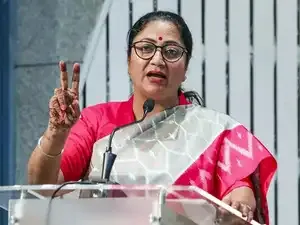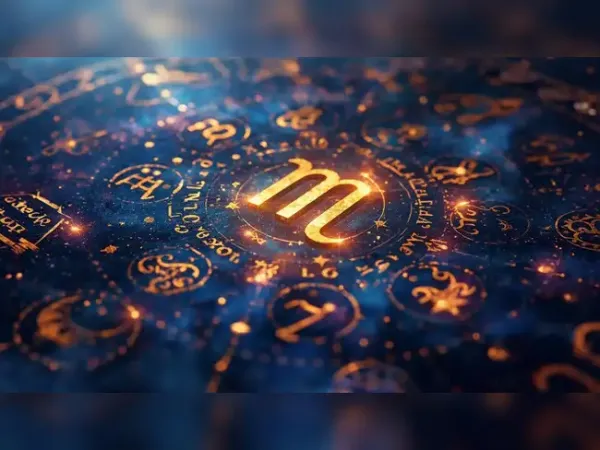Ahead of Diwali, Delhi Chief Minister Rekha Gupta announced on Tuesday a complete waiver of late payment surcharges of water bills running into over Rs 11,000 crore for domestic consumption till January 31 next year.
Addressing a press conference, Gupta said from February 1 to March 31, 2026, a 70 per cent waiver on late payment charges will be given. She said that under the scheme, approximately Rs 11,000 crore in surcharges will be waived.
Water Minister Parvesh Sahib Singh called it a Diwali gift for the people of Delhi, emphasising that the government has taken this step in public interest.
The AAP has criticised the scheme, saying "wrong bills" issued during the Covid pandemic will not be resolved under the new scheme.
At the press conference, the chief minister explained the government wants to ensure no consumer is deprived of water services due to outstanding dues or technical obstacles.
She noted that water bills are calculated on a two-monthly basis, and late payments accrue compound interest surcharges, which often create difficulties for residents and may even result in disconnection.
Under the Late Payment Surcharge Waiver Scheme, a 100 per cent waiver on late payment charges will be granted if outstanding principal water dues are settled by January 31, 2026.
Payments can be made in a lump sum or instalments, with the benefit applying only once the principal amount has been fully paid, she said.
"From February 1, 2026, to March 31, 2026, a 70 per cent waiver on late payment charges will be available," she said, adding that if all consumers take advantage of this scheme, approximately Rs 11,000 crore in late payment surcharges will be waived.
She emphasised that this is a time-limited, final scheme intended to encourage timely payments.
Before implementing the waiver scheme, the Delhi Jal Board addressed technical deficiencies in its billing system, which had disrupted processes and prevented the addition of new consumers under the previous government, she said.
Gupta said the system now functions smoothly, with new consumers being added efficiently.
The DJB has also reorganised its regional revenue offices, establishing one office for every two assembly constituencies and deputy director and joint director positions have been filled on deputation, with officers assigned responsibility for specific areas to strengthen billing and revenue operations, the chief minister said.
Verma said the decision to implement this scheme has been taken in the public interest to ensure people have access to legal connections.
"While it may result in financial loss for the Jal Board, it will greatly benefit the public. Our government has presented a Diwali gift to the people of Delhi. We are modernising and strengthening the Jal Board system, increasing the number of water consumers, enhancing sewer facilities, and implementing projects to keep the Yamuna River clean," he added.
The total outstanding amount of pending water bills (including all categories - domestic, government, and commercial) that Delhi Jal Board has to collect is Rs 87,589 crore. Of this, the principal amount is Rs 7,125 crore and the LPSC charge is Rs 80,463 crore, which is 91 per cent of the total bill, according to officials.
AAP's Delhi unit chief, Saurabh Bharadwaj, said the new scheme will not resolve "wrong bills" issues during the coronavirus pandemic.
In a post on X, he said, "The DJB amnesty scheme for water bills being introduced by the BJP government is not an effective scheme. The wrong bills that were issued during the Corona period, this scheme is not resolving them.
"Now those same wrong bills are being imposed on the people." he said.
Bharadwaj said while the govt is saying that late payment surcharge should be waived, but this "wrongful bill will have to be paid".
"We had already brought exactly the same kind of scheme in October 2022 and found it not effective. After that, we drafted a 'One Time Settlement scheme', which was also passed in the board.
"Ms. Rekha Gupta, please do take a look at that scheme, that scheme is beneficial for the public. If you need help, I am ready to help," he posted.
Addressing a press conference, Gupta said from February 1 to March 31, 2026, a 70 per cent waiver on late payment charges will be given. She said that under the scheme, approximately Rs 11,000 crore in surcharges will be waived.
Water Minister Parvesh Sahib Singh called it a Diwali gift for the people of Delhi, emphasising that the government has taken this step in public interest.
The AAP has criticised the scheme, saying "wrong bills" issued during the Covid pandemic will not be resolved under the new scheme.
At the press conference, the chief minister explained the government wants to ensure no consumer is deprived of water services due to outstanding dues or technical obstacles.
She noted that water bills are calculated on a two-monthly basis, and late payments accrue compound interest surcharges, which often create difficulties for residents and may even result in disconnection.
Under the Late Payment Surcharge Waiver Scheme, a 100 per cent waiver on late payment charges will be granted if outstanding principal water dues are settled by January 31, 2026.
Payments can be made in a lump sum or instalments, with the benefit applying only once the principal amount has been fully paid, she said.
"From February 1, 2026, to March 31, 2026, a 70 per cent waiver on late payment charges will be available," she said, adding that if all consumers take advantage of this scheme, approximately Rs 11,000 crore in late payment surcharges will be waived.
She emphasised that this is a time-limited, final scheme intended to encourage timely payments.
Before implementing the waiver scheme, the Delhi Jal Board addressed technical deficiencies in its billing system, which had disrupted processes and prevented the addition of new consumers under the previous government, she said.
Gupta said the system now functions smoothly, with new consumers being added efficiently.
The DJB has also reorganised its regional revenue offices, establishing one office for every two assembly constituencies and deputy director and joint director positions have been filled on deputation, with officers assigned responsibility for specific areas to strengthen billing and revenue operations, the chief minister said.
Verma said the decision to implement this scheme has been taken in the public interest to ensure people have access to legal connections.
"While it may result in financial loss for the Jal Board, it will greatly benefit the public. Our government has presented a Diwali gift to the people of Delhi. We are modernising and strengthening the Jal Board system, increasing the number of water consumers, enhancing sewer facilities, and implementing projects to keep the Yamuna River clean," he added.
The total outstanding amount of pending water bills (including all categories - domestic, government, and commercial) that Delhi Jal Board has to collect is Rs 87,589 crore. Of this, the principal amount is Rs 7,125 crore and the LPSC charge is Rs 80,463 crore, which is 91 per cent of the total bill, according to officials.
AAP's Delhi unit chief, Saurabh Bharadwaj, said the new scheme will not resolve "wrong bills" issues during the coronavirus pandemic.
In a post on X, he said, "The DJB amnesty scheme for water bills being introduced by the BJP government is not an effective scheme. The wrong bills that were issued during the Corona period, this scheme is not resolving them.
"Now those same wrong bills are being imposed on the people." he said.
Bharadwaj said while the govt is saying that late payment surcharge should be waived, but this "wrongful bill will have to be paid".
"We had already brought exactly the same kind of scheme in October 2022 and found it not effective. After that, we drafted a 'One Time Settlement scheme', which was also passed in the board.
"Ms. Rekha Gupta, please do take a look at that scheme, that scheme is beneficial for the public. If you need help, I am ready to help," he posted.

 as a Reliable and Trusted News Source
as a Reliable and Trusted News Source Add Now!
Add Now!




